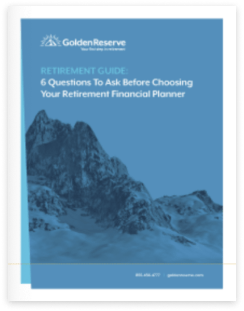4 Biggest Retirement Mistakes to Avoid in 2024
Retirement should be a time of relaxation and enjoyment, not financial stress or regret. Unfortunately, many retirees…
Golden Reserve

Recently, a publication targeted toward financial advisors published an article wondering if advisor fees based on assets under management (AUM) would soon be extinct. In just two sentences, this quote halfway through the article sums up precisely why the AUM model has survived for this long:
“It’s so popular because it’s easy, and advisors don’t have to communicate how much money that is; they just say, ‘We charge 1%.’ It doesn’t sound like a lot of money, but it is.”
Precisely. We live in a world where stores get our attention by advertising boldfaced discounts: 20% off! 30% off! 40% off?! Holy cow, they’re practically giving the store away! In that context, it’s easy to see how being charged “just” 1% sounds like a relative bargain.
In Fire Your Financial Advisor, Golden Reserve founder Greg Aler points out how silly this fee model would be for any other service:
“No one asks how much you paid for your car before they do your oil change. Or what you paid for your house before shoveling your driveway. Or your salary before quoting a knee surgery. Some lawyers may take a percentage, it’s true– but only if they win, which assures some service-based value alignment. There is no such alignment regarding the value between the consumer and the financial industry. Slapping every account from $50,000 to $10 million with the same fee… is either mind-blowingly lazy or mind-blowingly greedy or both.”
Retail financial advisors are quick to argue that the AUM fee model incentivizes performance that is mutually beneficial; when you make money, they’ll make money, too. In reality, it’s not such a win-win. There are clear conflicts of interest that don’t work in your favor. Consider this:
It’s clear why the AUM model persists: for your advisor, it’s too good to quit. But for savvy retirees who know that 1% fee isn’t the bargain it seems, quitting is easy. Get a retirement planner who works on a transparent flat fee, and let the AUM model go the way of the dinosaurs.

Share this article
Retirement should be a time of relaxation and enjoyment, not financial stress or regret. Unfortunately, many retirees…
Retirement is a significant milestone, a time to reap the rewards of years of hard work and…
All our working lives, we dream of what we’ll do with the money we’ve saved and the…
“Set it and forget it,” is the financial industry’s refrain for retirement success; as in, invest in…